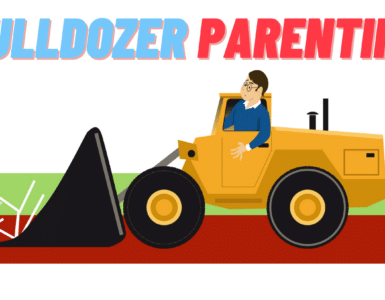Have you ever found yourself feeling hurt or disappointed by something your adult child said or did? You’re not alone. Relationships between a parent and an adult child can be hard to navigate emotionally, but it’s important to find ways to cope and work towards a healthier, happier relationship.
Let’s explore some actionable tips and strategies to help you manage your emotions and strengthen your bond with your grown child.
Understanding the Reasons Behind the Hurt
Sometimes, understanding the root causes of hurtful behavior can help you approach the situation with more empathy and find effective ways to address it. Here are some possible reasons your grown child may be hurting your feelings:
Differences in Values and Priorities
- Generational gaps: It’s natural for different generations to have varying values and priorities. Recognizing these differences can help you avoid taking your child’s differing opinions personally.
- Changing societal norms: We live in a dynamic society where cultural norms are also constantly shifting. Be open to learning and understanding how these changes may influence your child’s perspective.
- Personal growth and development: As your child matures, they will likely develop their own unique set of values and priorities. Try to be supportive and respectful of their growth and individuality.
Miscommunication or Misunderstanding
- Communication styles: People have diverse communication styles, and misunderstandings can occur when those styles clash. Make an effort to understand your child’s communication style and adapt accordingly.
- The impact of technology on communication: The way we talk to one another has changed a lot because of technology, and that could lead to misunderstandings. Take care of how you interact with your kid via technology, and if necessary, look into other options.
- Emotional intelligence: Building your emotional intelligence might help you better understand others and have more fruitful conversations. Strive to be aware of your own emotions and empathize with your child’s feelings.
Recognizing and Managing Your Emotions
It’s important to acknowledge and manage your emotions when your grown child hurts your feelings. Here are some tips for dealing with these challenging feelings:
Identify Your Feelings
- Acceptance of emotions: Do not judge or punish yourself while you allow yourself to experience and go through your feelings.
- Journaling to process feelings: Writing down your thoughts and emotions can be therapeutic and help you gain clarity about the situation.
- Seeking support from friends or a counselor: Reach out to a trusted friend or professional counselor for guidance and encouragement during this difficult time.
Practice Self-Compassion
- Avoiding self-blame: Remember that everyone makes mistakes and it’s okay to feel hurt. Don’t blame yourself for your child’s actions or words.
- Developing empathy for your child: Put yourself in their shoes and see if you can empathize with their plight.
- Focusing on self-care: Take care of yourself on all levels by making time for the things that make you happy and calm you down.
Strengthening Your Relationship with Your Grown Child
A strong relationship with your adult child is built on trust, communication, and respect. Here are some tips to help you foster a healthier bond:
Set Healthy Boundaries
- Establishing limits: Be clear about your expectations and set reasonable boundaries to protect your emotional well-being.
- Communicating your needs and expectations: Have open and honest conversations with your child about what you need in the relationship and what you expect from them.
- Respecting your child’s boundaries: Acknowledge and respect your child’s boundaries to promote mutual understanding.
Foster Open and Honest Communication
- Active listening: Give your full attention to your child when they’re speaking and try to understand their thoughts and feelings.
- Expressing feelings calmly and respectfully: Share your emotions with your child without blaming or attacking them. Use “I” statements to describe how their actions make you feel.
- Avoiding blame and judgment: Focus on resolving the issue at hand, rather than pointing fingers or criticizing your child.
Building Trust and Emotional Connection
- Reconnecting through shared interests: Find activities that you both enjoy and participate in them together to strengthen your emotional bond.
- Acknowledging and validating their feelings: Show your child that you understand and care about their emotions by offering validation and support.
- Practicing patience and understanding: Recognize that relationships take time to heal and grow, so be patient and understanding as you work through challenges together.
Finding Common Ground and Re-establishing Connection
Even in difficult times, it’s possible to find common ground and rebuild your connection with your grown child. Consider these suggestions:
Participate in Shared Activities
- Explore hobbies or interests together: Discover new passions or revisit old ones by engaging in shared activities.
- Engage in volunteer work or community events: Bond with your child while giving back to the community or supporting a cause you both care about.
- Plan family gatherings or vacations: Create opportunities for quality time and memory-making by organizing family get-togethers or trips.
Celebrate Achievements and Milestones
- Acknowledge personal and professional accomplishments: Show your child that you’re proud of their achievements by offering praise and encouragement.
- Support their goals and dreams: Be there for your child as they pursue their ambitions, and offer guidance and support when appropriate.
- Show appreciation for their growth and development: Recognize the positive changes in your child’s life and express gratitude for the opportunity to witness their growth.
Seeking Professional Help if Necessary
In some situations, you may need professional help to deal with ongoing conflicts or emotional pain. Here’s when to consider family therapy and the potential benefits:
When to Consider Family Therapy
- Persistent communication issues: If communication problems continue to plague your relationship, a family therapist can help you develop more effective strategies.
- Unresolved conflicts: Unaddressed conflicts can fester and damage relationships. A therapist can help you figure out how to deal with these problems.
- Emotional distress impacting daily life: If the emotional toll of your relationship with your grown child is affecting your daily functioning, seek professional help to address these concerns.
Benefits of Family Therapy
- Improved communication skills: Family therapy can teach you new ways to communicate openly and effectively with your child.
- Enhanced understanding of family dynamics: A therapist can help you explore the underlying issues contributing to conflicts and misunderstandings.
- Strengthened emotional bonds and support: By addressing emotional barriers, you can forge a stronger connection with your child and foster a more supportive relationship.
Conclusion
It’s natural for parents to feel hurt when their grown children disappoint or upset them. However, by understanding the reasons behind the hurt, managing your emotions, and taking steps to strengthen your relationship, you can work towards a healthier, more loving bond with your adult child.
Remember that patience, understanding, and open communication are keys to fostering a strong connection. If you feel like you need help, don’t be hesitant to ask for it, and remember that you’re not in this alone.
A stronger and more rewarding bond with your adult child is possible with time and work.











Written from the child’s point of view. I will love it when it happens to these ‘writers’ experience it themselves when THEIR ADULT children turn on them.